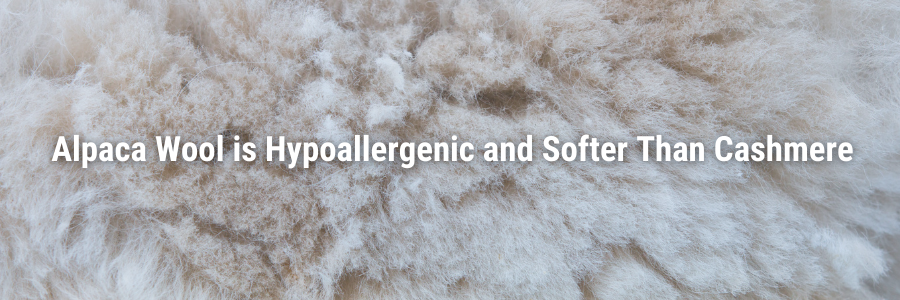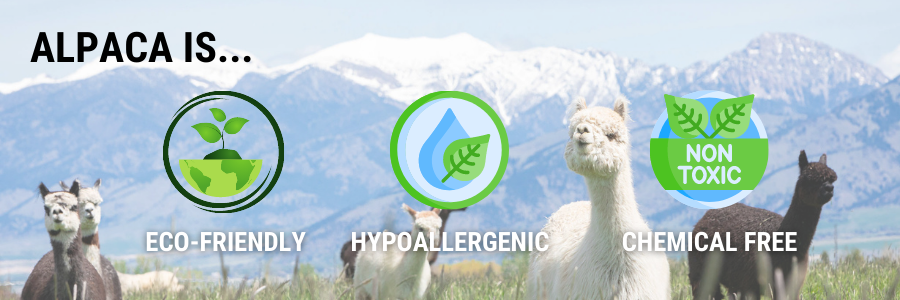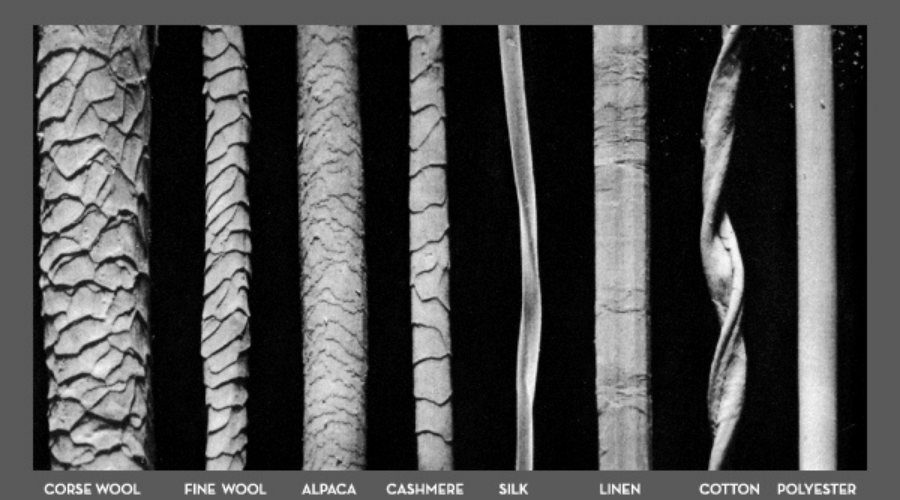Having sensitive skin may be with you forever, but itchy and irritated skin is a thing of the past. Alpaca wool is hypoallergenic, allowing your skin to feel and look its best without you compromising any warmth or breathability. Sheep’s wool got a bad rap for being notoriously itchy and pivoted to solve the problem. Great in theory, terrible for the environment.

Merino Wool fiber has barbs that look and feel like a little fish hook. Many people believe they are allergic to Merino Wool but they aren’t, the wool is actually just scratching their skin causing a micro-abrasion and then the sticky lanolin from the wool covers the scratch up and creates a bacterial micro-infection. In order to prevent this and why Merino Wool has all of a sudden gotten so much softer, is because manufacturers are putting the wool through an environmentally destructive process called superwashing.
The wool goes through a vat of acetones which burn the fiber and reduce the sharpness on the fish hook barbs. Then the fiber goes into another vat of peroxide based chemicals which reduces the amount of lanolin on the fiber. Then all of a sudden, the sheep’s wool is soft and not as itchy. But, and it’s a big but, the environment takes the hit at the cost of soft clothes. Often during the superwashing process, the chemicals that the sheep’s wool is washed in get dumped or leak into the ground, which then make their way to the water table. There’s also no way to entirely remove all of the harsh chemicals in the acid baths from the sheep’s wool so the wearer ends up wearing clothes still coated in chemicals.

Alpaca on the other hand has minimal to no barbs in its fiber, making it naturally hypoallergenic and giving no need to ever superwash or treat it in any way. We simply use an environmentally friendly soap to clean the organic matter off of the alpaca wool before it gets spun. Because alpaca wool is made of hollow fibers without sharp fish hooks, alpaca wool is hypoallergenic. You’re never going to get any micro-abrasions or additional itching issues.
Also, because it doesn’t have any lanolin, environmental allergens don’t stick to it or get processed into any of the products, ensuring that it will always be hypoallergenic, unlike Merino Wool, which, even after superwashing maintains some lanolin, allowing it to pick up environmental allergens that rub against your skin all day and make you itchy. Alpaca wool is also naturally softer than cashmere because it is a finer fiber with more malleable edges, making it the perfect hypoallergenic cozy companion.

Merino Wool may have stopped some of its itchy problems, but alpaca wool is the best hypoallergenic natural fiber.
Join the alpaca revolution! Alpaca is a sustainable alternative that is not only good for the earth, but for all of us. Alpaca wool is stronger, softer, more eco-friendly, and offers 85% greater wicking capability than merino wool. It is also hypoallergenic! Learn more about the benefits of alpaca in our Alpaca vs. Wool blog posts, shop our collections and follow us on social media!


